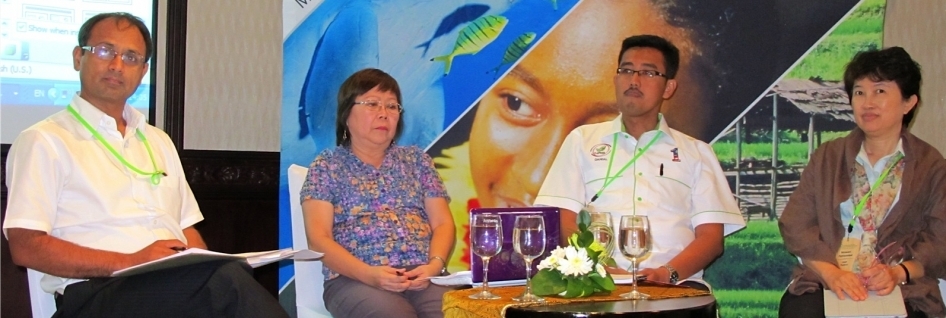- TEEB
- TEEBAgriFood
- Natural Capital Accounting
- TEEB Country Studies
- TEEB Water & Wetlands
- Other publications
- TEEB Case Studies (2009-2013)
- TEEB: Challenges and Responses (2014)
- Natural Capital Accounting and Water Quality: Commitments, Benefits, Needs and Progress – A Briefing Note (2013)
- TEEB Valuation Database Manual (2013)
- Nature and its Role in the Transition to a Green Economy (2012)
- Implementation Guide for Aichi Target 2: A TEEB Perspective (2012)
- Implementation Guide for Aichi Target 3: A TEEB Perspective (2012)
- Implementation Guide for Aichi Target 11: A TEEB Perspective (2012)
- Why Value the Oceans? A Discussion Paper (2012)
- TEEB Manual for Cities: Ecosystem Services in Urban Management (2011)
- TEEB for Business – Executive Summary 2010
- TEEB Climate Issues Update (2009)
- TEEB Interim Report (2008)

Geneva, 06 September 2013
The first TEEB training workshop on “Mainstreaming the values of water and wetlands into decision-making” was held 31 August 2013, in Bali Indonesia, organized as part of the 6th Annual International Ecosystem Services Partnership (ESP) conference. The workshop was attended by 26 participants, each interested in the broad field of ecosystem services and keen to share knowledge on how to mainstream these values in the decision-making process.
The Workshop funded thanks to the generous support of the government of Norway, drew from the findings and recommendations of the recently launched “TEEB for Water and Wetlands” Report, and the results of a training needs assessment survey distributed at the Kigali Forum for Wetlands.
This training was designed to provide participants with a better understanding of the concepts and methodologies behind recognizing, demonstrating and assessing the importance of water and wetlands, by using qualitative, quantitative and, when appropriate monetary indicators. The training session also aimed to build capacity through a targeted range of practical tools and exercises so that the participants could use the lessons learned within their professional contexts.
Throughout the day, participants were strategically guided through a series of three core training modules tailored to specific learning objectives, namely:
- Module 1: on TEEB and its role in water and wetlands which provided an overview of the origins and objectives of the TEEB initiative since its launch in 2007, and highlighted two recent products of particular relevance, the “TEEB for Water and Wetlands” report (February 2013) and the “Guidance Manual for TEEB Country Studies” (May 2013);
- Module 2: on improving measurement and assessment for better governance and wise use which sought to explain the importance of measuring the benefits provided by water and wetlands, present the key indicators to do so, and explain the uses, advantages and limitations of monetary valuation towards these purposes; and
- Module 3: on integrating the value of water and wetlands into decision-making which presented the most important policy tools toward the wise use of wetlands, their respective advantages and disadvantages, and a global set of case study presentations on how the ecosystem approach is and can be applied, including a particular emphasis on Southeast Asia, including government representatives from the Philippines, Malaysia, Nepal and Thailand, as well as a brief video and a presentation on the “Rewarding Upland Poor for Environmental Services” (RUPES) Programme in the Way Besai catchment area in the Philippines.
The TEEB for Water and Wetlands Report, builds on the TEEB approach to generate a better understanding of the ecosystem service values of water and wetlands and encourage improved decision making and business commitment for their conservation, investment and wise use. The primary objective of the report is to help identify major gaps and inconsistencies in current knowledge of the economics of water and wetlands, so as to inform agenda-setting for further work on the economics of water and wetlands.
